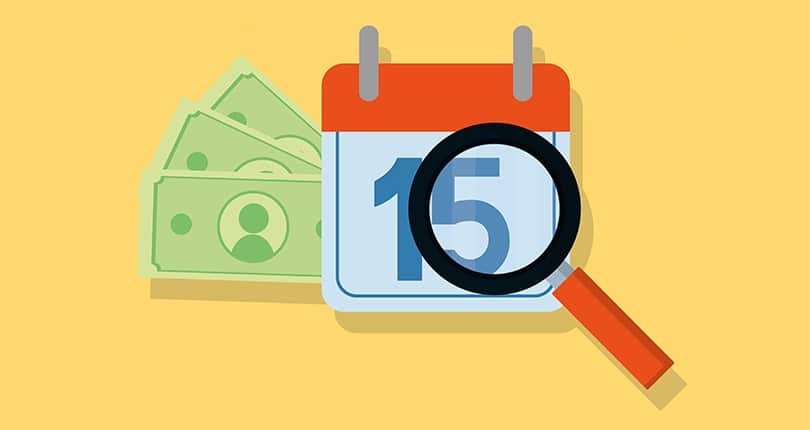8 Commonly Overlooked New Home Expenses
If you’re planning on buying your first home, you’re probably already educating yourself about the obvious expenses involved: the “sticker price” of the home, the mortgage, the down payment, the earnest money, the fees for credit checks, closing costs, inspections, and so forth. But if you’ve been an apartment dweller, you may not have considered the other costs that figure into the purchase process—or the ones that continue to affect you long after you’ve moved in. So now’s the time to get out your calculator and get a reality check. After all, you’re making what is quite likely to be the biggest investment of your life, and this is the time to be the wisest, most informed consumer that you can possibly be.
1. Let’s start with moving costs.
There’s the cost of the moving service or rental moving van and gas. Plus boxes, packing tape, and pizza for the family and friends who lend you their muscles and time.
• • •
2. Next, the utilities
—water, cable, electricity, gas, garbage service, telephone, etc. Perhaps when you lived in an apartment, some or all of these things were covered in your monthly rent. But when you’re a homeowner, you’re responsible for your own utility bills—and some of them will require a deposit. Of course, your water, electric, and gas bills will vary from month to month and from season to season because of the weather. The size of your home, your appliances and electronics, and your personal choices regarding comfort levels in heating and air conditioning will also make impacts on your monthly utility bills.
• • •
3. Will you need to purchase major appliances?
More than likely, your apartment was furnished with a refrigerator and stove, a microwave, a dishwasher, and access to a washer and dryer. But you’ll probably need to set aside funds to buy at least some of these items for a new home.
• • •
4. Consider what furniture you’ll need in a new home.
Chances are, you’ll have more space and more rooms to furnish in a home than you would in an apartment. And you might want a fresh design or “look” that coordinates with the style and architecture of your new place. So think about budgeting for this. But wait until after you’re actually a signed- sealed-and-delivered homeowner before you make any furniture or appliance purchases on credit. That’s because you don’t want any “big ticket” purchases to show up on your credit report. Mortgage lenders take into consideration all of your debt when they run a credit check. So wait until after you move in before you start filling up the house.
• • •
5. Remember that the “joys” of home ownership include home maintenance and repairs.
An air conditioning and heating system needs annual or
bi-annual service to keep it running efficiently and to extend the life of the unit. That can translate into several hundred dollars a year. And that doesn’t cover breakdowns and the subsequent cost of repairs. Plumbing maintenance and problems should also enter into your budgeting. In fact, it’s smart to put aside money every month and create a fund for just such things. Also, check to see if your new home comes with a one-year home warranty—which might take care of big things like the air conditioner going out. You might even be able to pay extra and have the warranty cover the small machinery—as well as give you an option to renew it after one year.
• • •
6. Figure in homeowners insurance and property taxes.
There’s no getting around these two things—they’re absolute essentials. It would be a good idea to get a realistic estimate of what property taxes will run—you don’t want any unpleasant, unexpected surprises come tax-paying time! As for homeowners insurance, it protects your home in case it’s destroyed by fire or other calamities. A standard policy should cover at the very least the value of your home and/or the mortgage loan amount. You also need to purchase flood insurance if your home is within a flood plain; it’s a requirement as a condition of closing.
• • •
7. Landscaping, security, and upkeep costs have to be considered.
Putting in a lawn, shrubbery, trees, and flowers—then maintaining them year ‘round—not only require work, but money. You might also want to consider things like a sprinkler system, and a lawn/garden care service—if you don’t plan on buying a lawn mower and other gardening tools and doing it yourself. As for a security system, insurance companies see it as a good idea. So good, in fact, that a monitored security system can sometimes get you a nice-sized discount on your homeowners insurance. Not to mention some peace of mind.
• • •
8. If your home is in a restricted or gated community, you may also be required to pay Homeowners Association membership and/or maintenance fees.
And don’t forget to check your deed restrictions before you move large things like your boat or your RV to your new home. You might find that they’re not allowed, which means you’re going to have to pay to store them elsewhere.
• • •
Still think being a homeowner is the smart way to go? Well, you’re right—it is. Yes, it may be a little overwhelming at first. And sure, it can be a costly proposition. But there are definitely rewarding reasons for owning your own home—especially financially. For instance, when it comes to investment value, it really beats renting (think of all that money spent with nothing to show for it). And keep in mind that a house is a marketable commodity; in some cases, it could be a much safer investment than many stocks and bonds. Besides, the advantages of home ownership really stack up high in the long run. You’ll have proof of that come April 15th–Tax Day.
© RGV New Homes Guide, 2019. Unauthorized use and/or duplication of this material without express and written permission from this site’s author and/or owner is strictly prohibited. Excerpts and links may be used, provided that full and clear credit is given to RGV New Homes Guide with appropriate and specific direction to the original content.














Join The Discussion